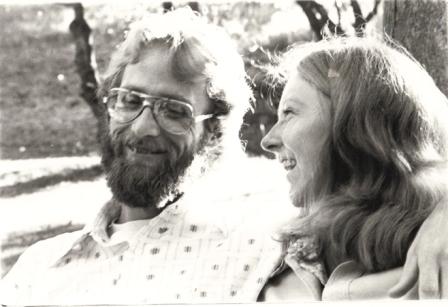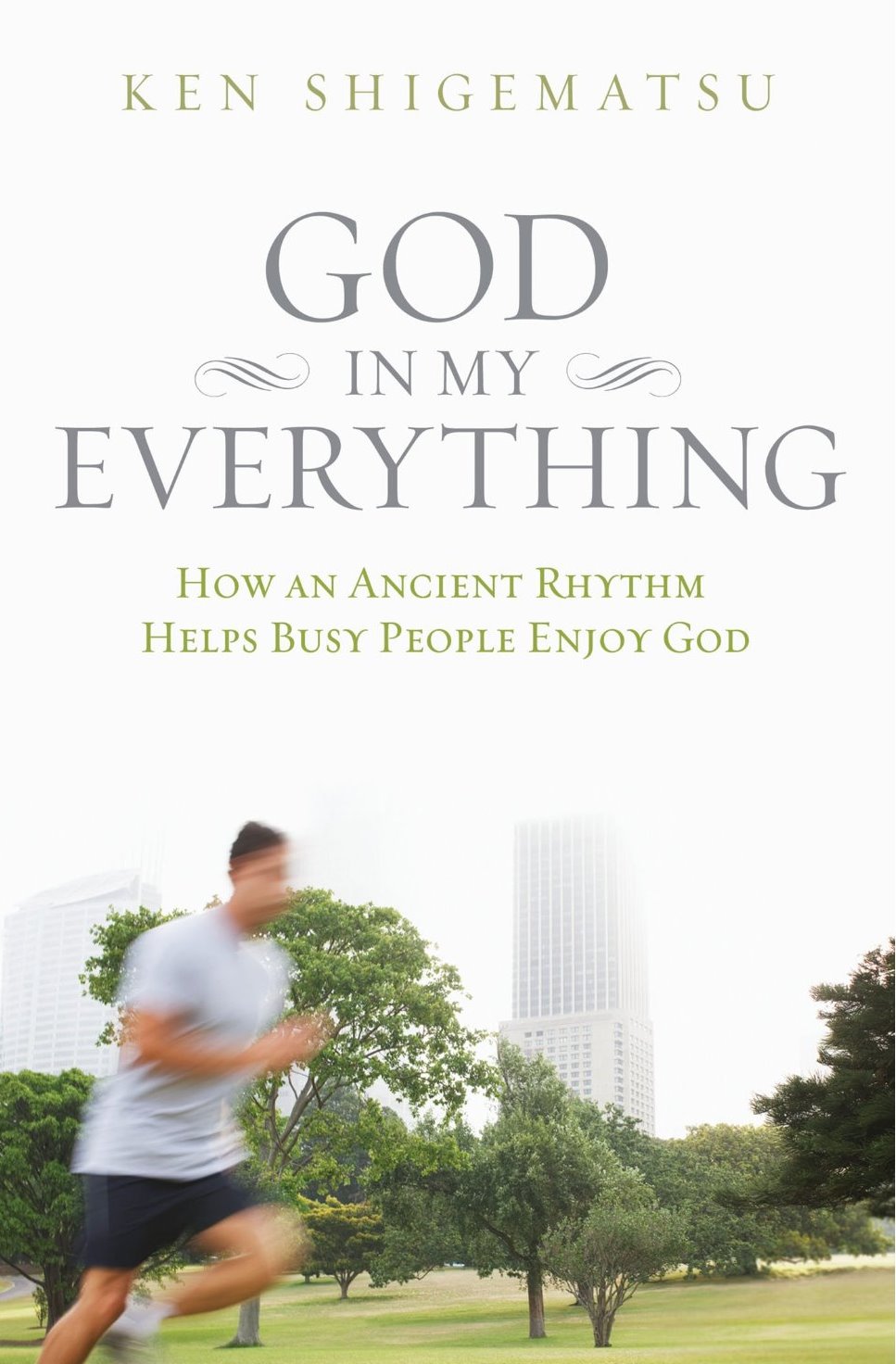|
Murray's
Blog 2015 Occasional reflections on the journey - from wherever we might be... Or view entries from other years. Subjects are generally not time-sensitive.
|
 |
December 2, 2015
Amen
Amen is a common word, at least among those who pray. Used perhaps without reflection. But consider this:
The word amen (from the Hebrew aman = to be steadfast, trustworthy) is used in the Old Testament most often in the sense of "so be it", to reaffirm one's desire for God to at or to join in the praise of God. In the New Testament it is commonly the affirmative concluding word of a prayer. Most often, however, Jesus himself use it as an otherwise unusual introduction to a speech. It underscores the authority of his words. (YouCat: Youth Catechism of the Catholic Church, Ignatius Press, San Francisco, 2010. #164)
The affirmation of God's steadfast trustworthiness is foundational to confident prayer. May we know the God who says Amen!
A parallel insight underlies the words of Jesus translated variously as "Truly, truly or Verily, verily I say to you..." e.g. John 5:24-25, 12:24). Jesus' words are certain:
"Very truly (literally, Amen, Amen) I tell you, whoever hears my word and believes him who sent me has eternal life and will not be judged but has crossed over from death to life. 25Very truly (literally, Amen, Amen) I tell you, a time is coming and has now come when the dead will hear the voice of the Son of God and those who hear will live.24
May our words also be amen. May men and women, our children and neighbors know our word is truth to be counted on.
_______________________
August 17, 2015
Why Some Debates won't be resolved by Debating
One of the radical implications of monotheism (see post below) is that God is right. Essentially this means that we (humans) are not the measure of all things, though some of us would like to be, but rather this is the domain of God alone. This God-centric standard extends to how we view reality (worldview), the standards of our behavior, ethics in other realms, and even our very (human) identity.
It shouldn't be surprising then that monotheism - not an undefined god-principle, but rather the very specific God and Father of our Lord Jesus Christ - has implications for what it means to be human, male and female, married, and yes - how to deal with sexual attraction to the opposite sex, same sex or attractions of other kinds.
It's important to note that questions of sexual attraction, gender identity and related issues are not resolved simply by giving ourselves "rights" without asking if it is God who gave these rights or whether we are pretending to give what is not in our hands to give. These questions are resolved instead by looking at the underlying realities out of which arise what it means to be human in relation to the One who made us human and has defined who we are.
Some of what we find are well expressed by Ravi Zacharias at this external link which I commend to you.
_______________________
June 18, 2015
The Radical Implication of Monotheism: one God or many? So What's the Difference? (more here)
Some are quick to declare there is really only one God or that all Gods are the same therefore there is no need to fuss about supposed differences between religions.
Is that so?
It's true of course that contradictory religions have common elements: the desire to know God, belief in some kind of supreme being or principle, authoritative writings and sincere adherents. But does that make them the same?
For instance Greek and Norse gods are depicted as fighting each other, deceiving, lying, killing and stealing to get ahead; much like some people do. Greek gods in that way seem to be made in our image; but bigger versions of our sinful selves.
In one religion rats are worshipped. In another demons are served. In some places there were no hospitals or doctors before the Gospel arrived because the concept of compassion was foreign to their view of god.
In another religion people are beheaded in the name of their god. What kind of god is that?
Christians have done some stupid things but Christianity as a whole stands out from these practices. Why? Because God Incarnate in Jesus Christ isn't the same as other religions.
Forgiveness isn't offered by any other religion. Why is that? Because it's not the same God.
The Gospel is that God loves us and loves to have fellowship with us. Why do other religions not say that? Because it's not the same God.
Are all gods the same or
does monotheism mean there really is only one God and the others claimants aren't God? Or
at minimum aren't the same God?
If there is and can only be one actually supreme God, regardless of number of others who claim to be gods, we are left with many profound consequences.
Different religions come to markedly different conclusions essentially because they are pursuing a claimant to being a god, yes, but not God.
It becomes then our primary interest to know who the one supreme living God is and as much as possible about Him. Look to Jesus.
Secondly it becomes our central interest to respond to Him in the ways which are consistent with His nature. God uses words to tell us about Himself and words can be useful in describing God but as Jesus is God's Word made flesh, God enables us to live in ways consistent with His nature. Begin here.
Thirdly when faced with a choice, we will always choose the word, view, direction, or perspective of God the Father of our Lord Jesus, over that of the word, view, direction or perspective of those who disagree with Him.
_______________________
May 21, 2015
Words
Words are ubiquitous and much has been said about them. The fact is words are powerful. They can hurt and even misshape the way we see reality or, more personally, ourselves.
Words begin in the heart and often tumble out, unfiltered, borne along by strong emotion. Once words have done their work they cannot be retracted. I've seen the damage. I've too often caused the damage.
Words should be used to encourage. Words need to be filtered. A friend recently reminded me of the value of memorizing 5 simple words, in the form of questions, as filters before we speak:
-- Is it True?
-- Is it Helpful?
-- Is it Inspiring?
-- Is it Necessary?
-- Is it Kind?
We need to think BEFORE we speak. The first letter of each filter is easier
to remember if remember they spell THINK.
Jesus reminded us we will give an account of every careless word we speak on
that final day (Matthew 12:26-37) - better to say "ouch!!!" now when we bite our
tongue than later...
_______________________
May 14, 2015
Apple Phones and Computers
I've long favoured helping keep Mom and Pop stores going (read: "small business") even if I have to pay 10% more for the same products than at the big box stores.
In the case of computers there aren't any small "Mom and Pop" producers that I know of so we have to make socially responsible choices between the big players - primarily Apple and Windows for laptops, and other well known brands for so-called smart phones.
Let me make the case for Windows, not for techie reasons but for ethical reasons. Consider the following reasons not to buy Apple products:
· Apple's deliberate focus on 'me', 'I' - (e.g. Ipod, Iphone, emails are 'ME.com' emphasising and elevating pride and selfishness.
· Extreme capitalistic greed - Apple amasses vast unnecessary wealth. This
could be excused if the wealth were shared. Read on...
· Lack of corporate giving and social responsibility - until recently Apple has had a O% policy on giving. Even now it's still tiny (unlike most large US companies which are far more generous).
· Aggressive tax evasion
- Apple established off shore subsidiaries in Ireland to route both profits and intellectual property rights. From 2009 to 2012 Apple reported net income of $30bn but declined to declare any tax residence, filed NO corporate tax return and paid NO corporate income taxes to ANY national government for 5 years! Apple aggressively 'avoids' paying $10bn of US tax EVERY year!
- Apple has $137bn in a Manhattan bank, but classed as being 'outside' the USA and therefore not taxable.
· Apple ignores developing countries. Only the wealthy can afford their products in poor regions wbere Apple does not produce a cheaper range like e.g. Samsung/Android.
· Slave labour - BBC Panorama (made by an Apple user) uncovered how Apple factories use what is in effect slave labour - workers having their ID cards illegally taken from them, being forced to work 16 hours a day, 16 days in a row etc, illegally using tin mined by children etc. Apple's response was that it was saddened by the program - even though they have plenty of money to effectively monitor all their factories and producers.
· Cult like behaviour in e.g. launches, tying people into their own more money-making options instead of generic options (chargers, micro USB, SD cards etc)
· Bad for the environment - you can't easily replace Apple batteries or carry a spare.
· Security - sometimes in meetings in sensitive countries it's necessry to
remove the battery and SIM from phones. This is not possible with an iPhone.
Security experts say Apple computers are less secure than PCs.
We can do better. Let's choose and buy with our consciences.
Need to read more?
http://www.businessinsider.com/how-apple-reduces-what-it-pays-in-taxes-2013-5#ixzz3XBCGK4Sa
http://www.bbc.co.uk/news/business-22607349
http://www.forbes.com/sites/beltway/2013/05/21/the-real-story-about-apples-tax-avoidance-how-ordinary-it-is/
http://www.bloomberg.com/news/articles/2013-05-23/explaining-apple-s-irish-tax-dodge
http://www.washingtonpost.com/blogs/wonkblog/wp/2013/05/20/how-to-make-30-billion-and-pay-no-corporate-income-tax-the-apple-way/
http://www.theguardian.com/technology/2014/oct/05/apple-tax-investigations-europe-united-states-cork-ireland
_______________________
April 28, 2015
A "Strange and Immoral Silence"
Perhaps as amazing and astounding as the great persecution of Christians
underway
 globally
is the world's ability to focus almost anywhere else in order to ignore it.
Recent efforts have sought to open the eyes and ears of the United Nations
(external
link) to address this "strange and immoral silence" (external
link).
globally
is the world's ability to focus almost anywhere else in order to ignore it.
Recent efforts have sought to open the eyes and ears of the United Nations
(external
link) to address this "strange and immoral silence" (external
link).
The Pope and Orthodox leaders have called on those of good will not to join in complicit silence but stand for the human rights desired for others and themselves.
| Carol and I have set an alarm for 10:02 every morning to pray for the coming of Christ's Kingdom and for those who persecute Him (Acts 9:4). |
|
How should we pray for our brothers and sisters dying at the hands of violent men?
- Pray for courage and grace to be sustained and witness fearlessly and lovingly to the resurrection and coming of Christ.
- Pray the Holy Spirit will enable our persecuted brothers and sisters to focus on Jesus' love and sacrifice for them to the last moment.
- Pray they will remember and say as He did, "Father, into your hands I commend my spirit" (Luke 23:46) and be received into glory.
Is there more we should do? Of course! As the Jews wanted us to speak up for them against the Nazi horror we must speak up for all who are persecuted. We can give financially to those serving the refugee camps which being produced by those fleeing persecution. Some can help personally.
Our strange and immoral silence is maintained by those who stand with the persecutors by looking the other way.
_______________________
March 15, 2015
Amazing and Miraculous Grace - to ISIS
Recently we heard this story from a former teammate serving displaced persons of all and no faith in strife-torn Iraq - posted also by a Coptic monastery in Arabic - about a IS militant who became Christian in Syria at the border of Iraq: One of the monks found the 32 year old man dead on the battlefield after an attack on Christians.
The monk and those with him decided to take the body to the monastery, 26 km away, and bury him there. On the way life returned miraculously to the ISIS militant. As he gained consciousness the militant told the monk that when he died he thought he was going to heaven as a reward for serving Allah in the ISIS campaign. Yet as he was ascending towards the light, evil spirits appeared and led him to the gates of hell. There he was shown the people he killed and told he would have to relive the suffering of the people he beheaded and all the people he killed during his life.
When he returned to life on this earth, he committed his life to Jesus. His wounds begin to heal quickly. Now he lives in the monastery and wants to share his testimony with ISIS and warn them they have been deceived.
And on Earth, How are Christians responding to ISIS?
Painfully of course, but see this response from Egyptian Christians following the abduction and beheading of 21 young Coptic believers in Libya in the
See also the interview and song from Miriam, a 10 year old girl in a refugee camp who hates not those who took so much from her
Miriam's Story and Song
_______________________
January 13, 2015
Birthday Reflections
Birthdays have always given me pause, now especially as the years pass when I could reasonably anticipate more years in the future than I've experienced. True, this is the season of life when I make sure my Last Will and Testament is up to date and any advance funeral arrangements which will ease the load on our children have been made. No, it's not too sober. As Ann Voskamp observes: "Eventually, I am guaranteed to lose every earthly thing I have ever possessed." Too negative? Read on...
How then shall we live? The answer is not actually difficult.
Mortality in fact is a gift which helps us narrow our priorities (more).
First, let us live thankfully. Let's slow down often enough to drink in the stillness, the beauty and the grace of God. In this Ann Voskamp has been my mentor. I'm reading her book a second time, a few paragraphs at time, meditatively. My list of God's gifts of grace - large and the easy-to-miss, momentary, slow-down-enough-to-notice - is going into a spiral notebook a line at a time and is softening my heart. If you read nothing else this year, read One Thousand Gifts.
Another, perhaps more obvious part of the answer is do not trade your life for pursuing stuff. Stuff brings less pleasure than you anticipate. It has to be cleaned, repaired, stored, protected from thieves and eventually goes to the landfill. Not worth it. Enough to live comfortably. No more.
Rather, live to give. Start generously when you first become aware of having something, though you may be comparatively poor, and give more and more as you gain capacity. Remember the biblical tithe is only the starting line, not the finish line. And as Jesus said, don't give to those who will give back. That's not giving, it's trading. Give rather to those who have less than you do, who can't give equal value back, those you don't know. Only what you give away will outlast your life.
This morning our 9 month old grandson came to visit. He sat on my lap, reached for my glasses and put them in his mouth. He was enthralled with the chimes of our wall clock. He laughed as Carol blew noisily on his stomach. How shall we live in the light of mortality? Let's love those nearest to us, be they family or neighbours, lavishly. Only love drawn from the Father will last.
Though your light seem small, let Jesus shine in and through you. No greater gift can you give than Jesus gives to those you invite to know and follow Him. No gift, though reviled, has given more to the world than Jesus. No gift has better stood the test of time or will extend into eternity. How then shall we live? Given the brevity of life, love and follow Jesus closely. Be His disciple daily and make disciples who will change their worlds and our world.
I can't resist the temptation to commend one more healing, helpful book. Ken Shigematsu's God in my Everything recognizes the busyness of our lives in which time seems in short supply. Ken draws from the tradition of monks and mystics to help us craft a 'rule of life' shaping us, giving safe boundaries and eternally worthwhile goals.
Have you done your birthday review? It's worth the time and here's a place to start.

